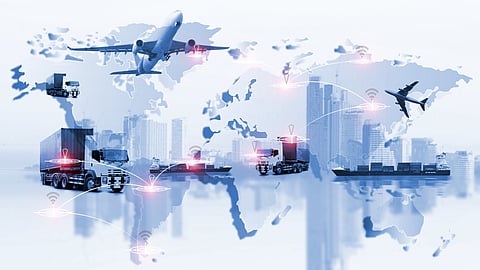DHL: Future of Logistics Depend on Four Elements
A recent Logistics Trend Radar report by DHL reveals crucial trends that will impact the future of the logistics industry.
The logistics industry are looking for solutions to make global supply chains smarter, faster, and more efficient. DHL’s Trend research suggests that digitilisation will provide the biggest opportunity for the logistics community.
Industry players are turning to automated and digital solutions to improve operational efficiency and enrich the customer experience.
“Our Logistics Trend Radar acts as a roadmap for innovation, helping to structure and catalyse further industry-leading research and projects together with our customers and partners.” said Matthias Heutger, Senior Vice President, Global Head of Innovation & Commercial Development at DHL.
Matthias added, “We focus strongly on the digital revolution happening in the industry and its impact across four key elements defining the future of logistics: customer-centricity, sustainability, technology and people.”
Customer centricity will remain the focus of supply chain service providers, as they will be expected to meet customer demands for a seamless logistics experience.
This demand for inconvenience and speed is also responsible for the growth in direct-to-consumer shipments of time-and-temperature sensitive goods.
This Fresh Chain will require innovations in packaging, storage and delivery of goods, particularly for goods like groceries and pharmaceuticals.
Sustainability has become and will continue to be the focus of governments, cities, and companies. They will all work towards reducing emissions and tackling climate change.
Emirates Flight Catering and Crop One Holding Build World’s Largest Vertical Farming Facility
The logistics industry will have to develop and implement environmentally friendly operations throughout the supply chain.
Technology and transformative innovations is a trend that is rapidly accelerating within the logistics industry. Two particular trends to watch are the next-generation of AI and blockchain technologies, as they are at the heart of enhancing and improving operations.
“Innovation does not follow a linear path - the success of some trends will rely on culture and capabilities as much as it does on breakthrough technologies and business acumen.”
Markus Kückelhaus, Vice President Innovation & Trend Research, DHL Customer Solutions & Innovation
People and human capital will continue to be crucial to the logistics industry. New roles will be created required to manage the introduction of automated solutions.
The shift within the workforce means the logistics industry will see an increase in the number of programmers and managers.
DHL also emphasised the growing opportunities with the advancement of distributed ledger technologies such as blockchain on the global supply chain.
These developments can remove a number of complex processes from the global supply chains and provide better visibility for the customer, on traceability and transparency of goods across the supply chain.
The adoption of these technologies is dependant on scalability and power consumption as well as the regulations from governing bodies.
Read more: FedEx CEO: Blockchain to ‘Completely Change’ Supply Chain


